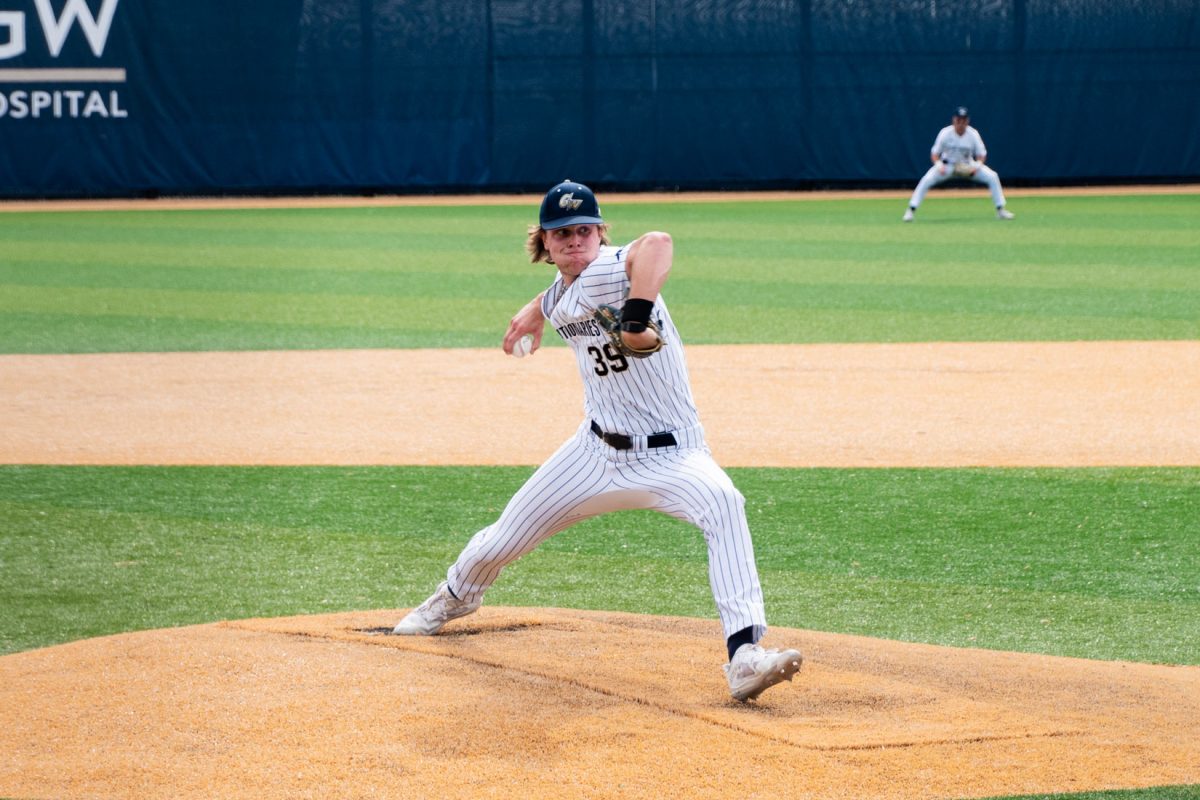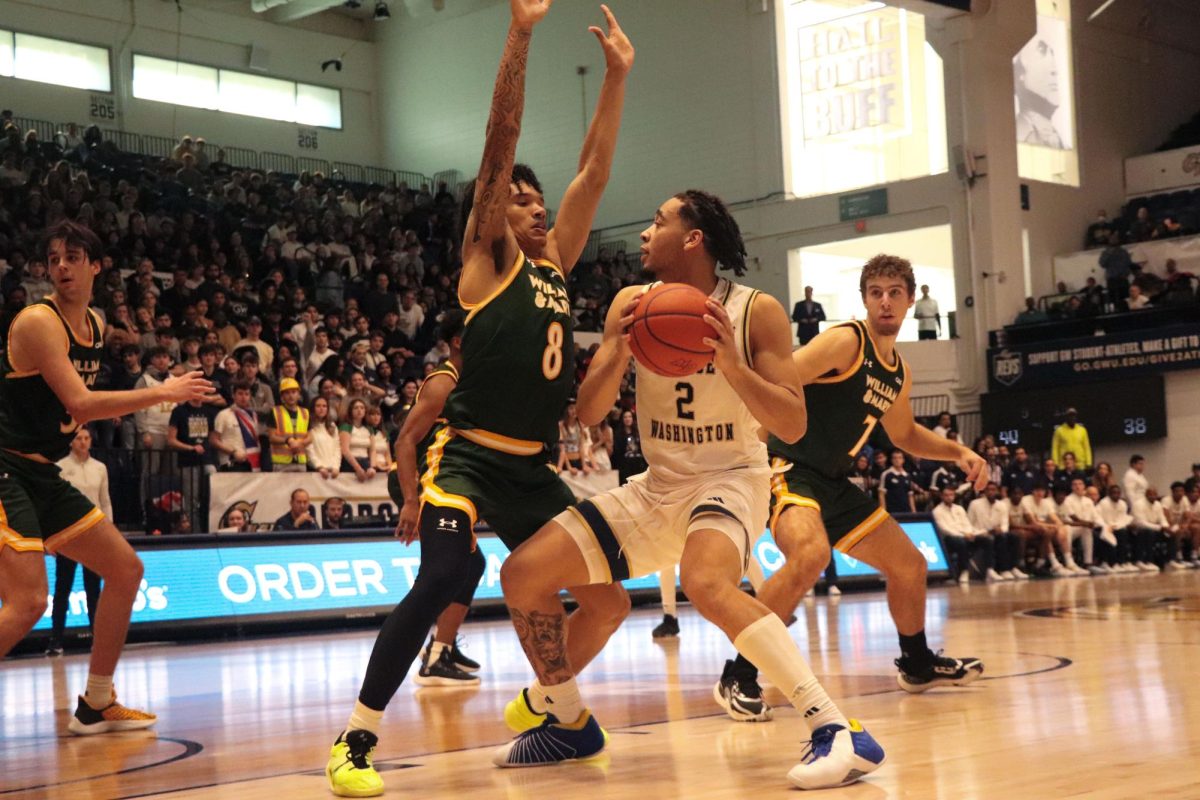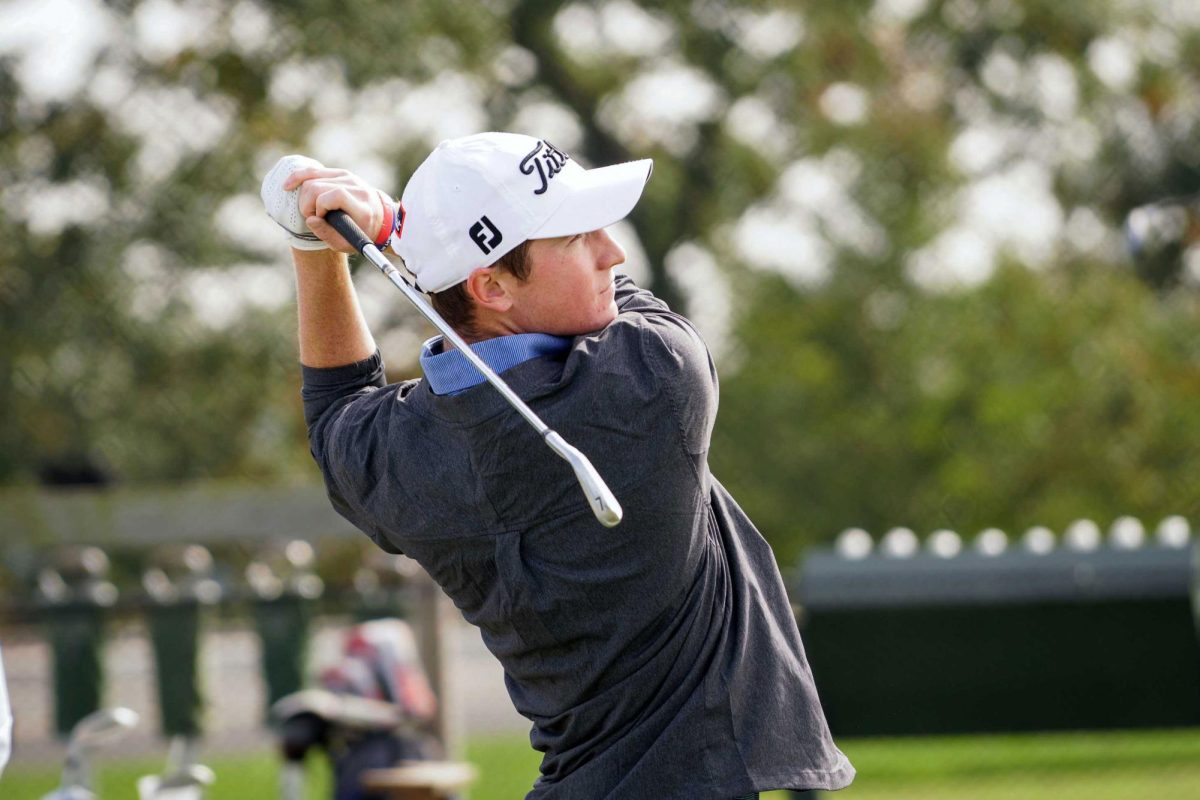BRONX, N.Y. – After the Colonials defeated the Fordham Rams 76-65 at the historic Rose Hill Gym Saturday, head coach Karl Hobbs talked about why his team has been so successful this year.
“Three words,” he said. “Character, unselfishness and a determination to be special.”
Knowing they might play the rest of their season – including the NCAA tournament – without senior Pops Mensah-Bonsu, these traits may be more important than ever.
Mensah-Bonsu, who sustained what is being termed a slight tear in his meniscus during GW’s victory over La Salle last Wednesday, is a team captain and is widely regarded to be the Colonials’ spiritual leader. Losing him to injury represents the first real piece of adversity GW has faced this year, Hobbs said.
“We’re very fortunate to be this deep in the season and this is the first time we have to deal with some true adversity,” he said. “It’s like anything else; we deal with the truth, we talk about accepting the truth, and the truth of the matter is that he’s hurt and the second truth of the matter is that everyone has to step up.”
Even before this latest setback, Mensah-Bonsu has had a tumultuous last year and a half on the court. Last season, he broke his nose in a loss to Massachusetts. This year, Mensah-Bonsu sprained his ankle in an exhibition against Augusta State before receiving a three-game suspension from the NCAA for violating rules during his flirtation with the NBA Draft.
Before a game at Temple in January, Hobbs pointed to another ankle injury that affected the London native’s play. Although the injuries keep coming, Hobbs said that Mensah-Bonsu – who was not made available for comment – was still in good spirits.
“He knows that he has to be patient; he knows he can’t come back too too soon, can’t rush through it,” Hobbs said. “And he has a wonderful attitude, and that’s part of the healing process, having the right attitude.”
Although the stated timetable for the 6-foot-9 forward’s return is two weeks, Mensah-Bonsu is a professional basketball prospect, and premature usage of the injured knee may further damage the tissue.
“My job is to try to make sure that every single student-athlete that comes to GW, whatever their dreams or aspirations are, for me to work as hard as I can to make them come true,” Hobbs said. “So his health is the first thing; we’re not even thinking anything other than him getting himself back health and that’s the focus nothing else is on the agenda except this health.”
Senior Mike Hall, who also harbors professional aspirations, said Mensah-Bonsu cares deeply about the team but has to look out for himself as well.
“Pops is a very smart young man; he cares about this team as much or more than anyone else but he understand his body, understands that he doesn’t want to put himself at risk,” the 6-foot-8 forward said. “So I’m sure he’s going to do what’s best for him and just support the team any way he can.”
Despite seeing his teammate go down with injury, Hall said that his play would not be affected by the potential of a career-damaging injury.
“I’m not in that position to just coast; I just have to play as hard as I possibly can, not worry about anything past the game that’s in front of me, because I don’t have that luxury,” Hall said. “I’m going to play hard, and hopefully we’ll have a successful and long season.”
Two players that figure to see an increased role in the 6-foot-9 forward’s absence are senior Alex Kireev and freshman Rob Diggs. In a combined 22 minutes of action against Fordham, Diggs and Kireev pooled to score 10 points and grab seven rebounds against the Rams.
Despite the added scrutiny he is sure to receive, Diggs does not feel much differently about his responsibility on the team with Mensah-Bonsu sidelined.
“You’ve just got to step up; whether it’s two minutes or 15 minutes, you have to play hard,” he said. “You’ve got to step up and perform even without Pops.”







